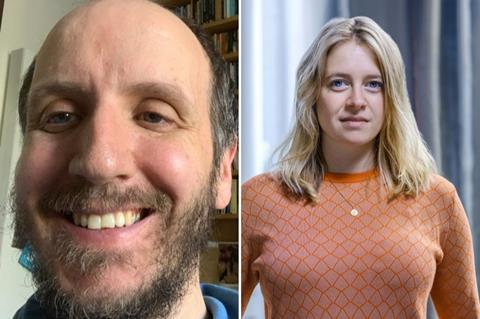
Working conditions for disabled talent are set to improve with ScreenSkills offering to fund training for accessibility coordinators, following advice from pressure group Underlying Health Condition (UHC).
The individuals who are trained will go on to ensure that actors and crew are provided with the support and facilities required to carry out their jobs safely and with dignity.
Funded via ScreenSkills’ High-end TV Skills Fund, up to 12 trained individuals will be available for producers to employ by the end of the year, after the need for the role emerged as a key recommendation in UHC’s Everyone Forgot About The Toilets report in December.
Written by writers Jack Thorne and Genevieve Barr, the report criticised studios for providing poor working conditions for disabled talent.
The ambition is for accessibility coordinators to be brought into productions from greenlight to provide direction and support around content, production base, studio and locations, and work with heads of department, crew and talent to remove barriers to access.
Training will be delivered by actor and disability consultant Julie Fernandez, who starred in the BBC’s The Office, and disability advocate Sara Johnson through her company Bridge06.
Thorne, who spoke about the appalling treatment of disabled talent in the TV sector in his MacTaggart Lecture last year, said the introduction of the role is “long overdue”.
“Intimacy and Covid coordinators have lit the path for positions like these to be recognised as essential. We must tell more disabled stories and we must empower more disabled people to tell them,” he said.
“The role of accessibility coordinator is vital and will support both busy productions and the industry in making the changes needed.”
ScreenSkills director of high-end television Kaye Elliott said: “We hope that by supporting the training of accessibility coordinators, we can empower the industry to become more confident in working with disabled talent and crew.
“I know productions will embrace the opportunity to access a dedicated individual who can help to identify needs and support the implementation of the logistics to make everything work well – to the benefit of the production, disabled professionals and the industry at large.”
Fernandez and Johnson said they have already begun to research a combination of production practicalities and disability access requirements to create a “gold standard course” for the first cohort of trainees.
“Disabled people are incredibly creative and have by their very nature as disabled people, had to think outside the box, which makes them great employees with a powerful voice. The dream is to build an army of educated allies through the accessibility coordinator role, further cementing inclusion into the industry through this simple and obvious step to big systemic change,” they said.
Actor Cherylee Houston, one of the artistic directors and founders of the Disabled Artists Networking Community (DANC), said: “What’s so exciting about this project is that it has lived experience at the forefront, in both Julie’s many years of experience and Sara’s production and disability advocate background.
“Finally deaf, disabled and neurodivergent talent in TV won’t have to educate everyone around them on disability and access – they will simply be able to do their job.”
ScreenSkills will open applications in late April for training to run across June and July.
The High-end TV Skills Fund also has a bursary pot for disabled crew to secure funds for accessibility requirements.
A version of this story first appeared on Screen’s sister site, Broadcast.






![The Brightest SunScreen[Courtesy HKIFF]](https://d1nslcd7m2225b.cloudfront.net/Pictures/274x183/3/5/0/1448350_thebrightestsunscreencourtesyhkiff_312678.jpg)


















No comments yet